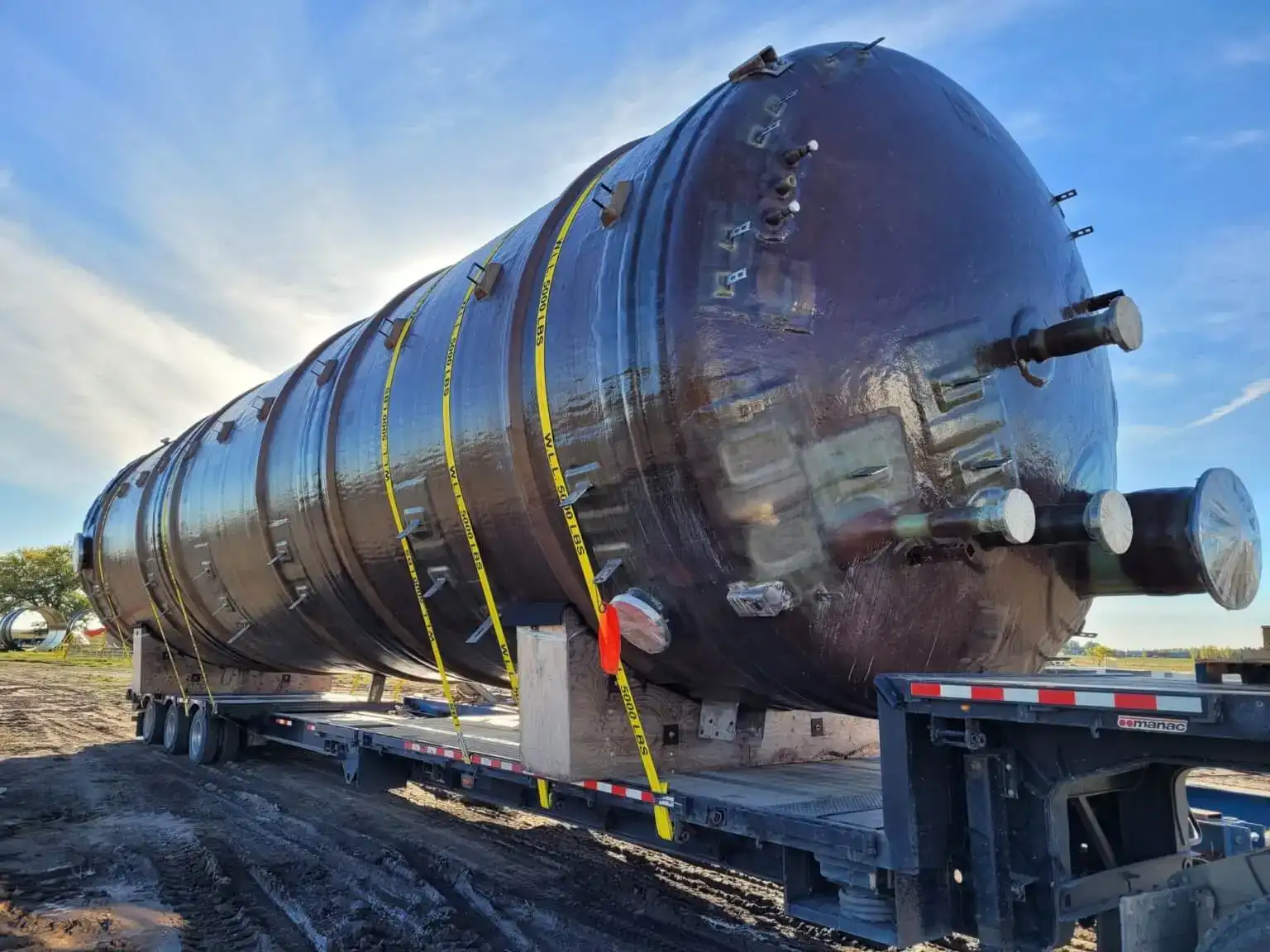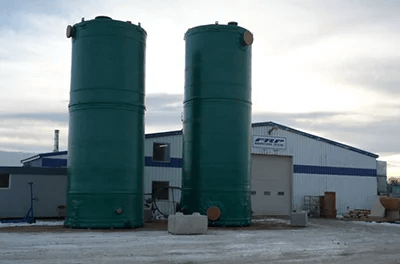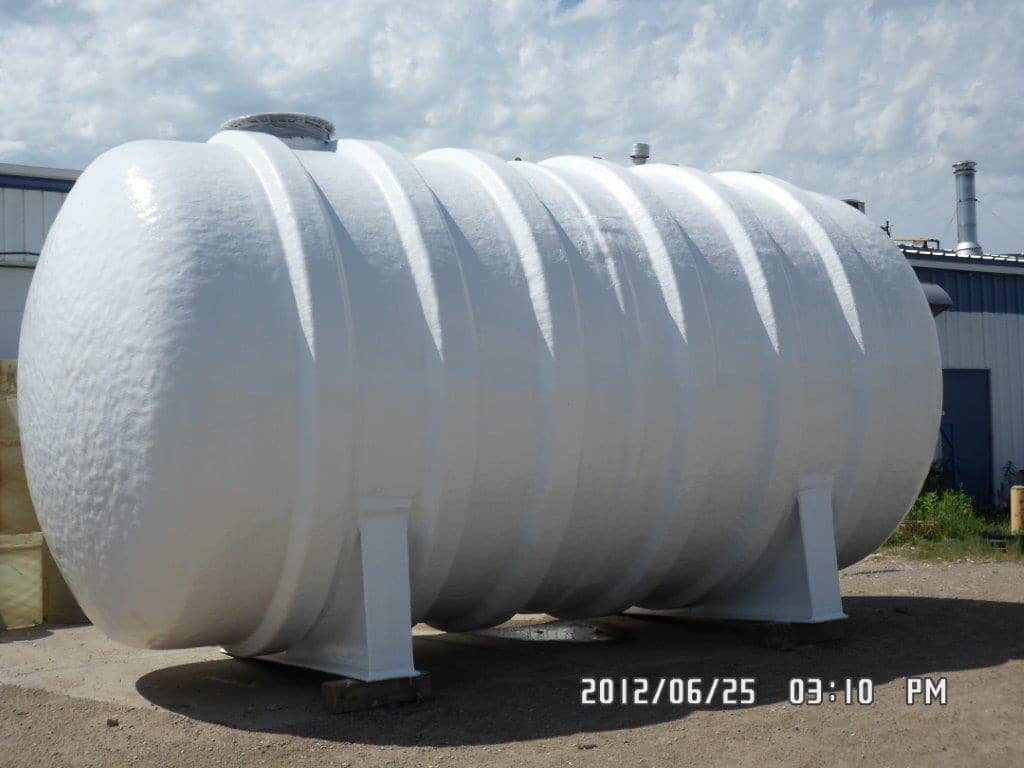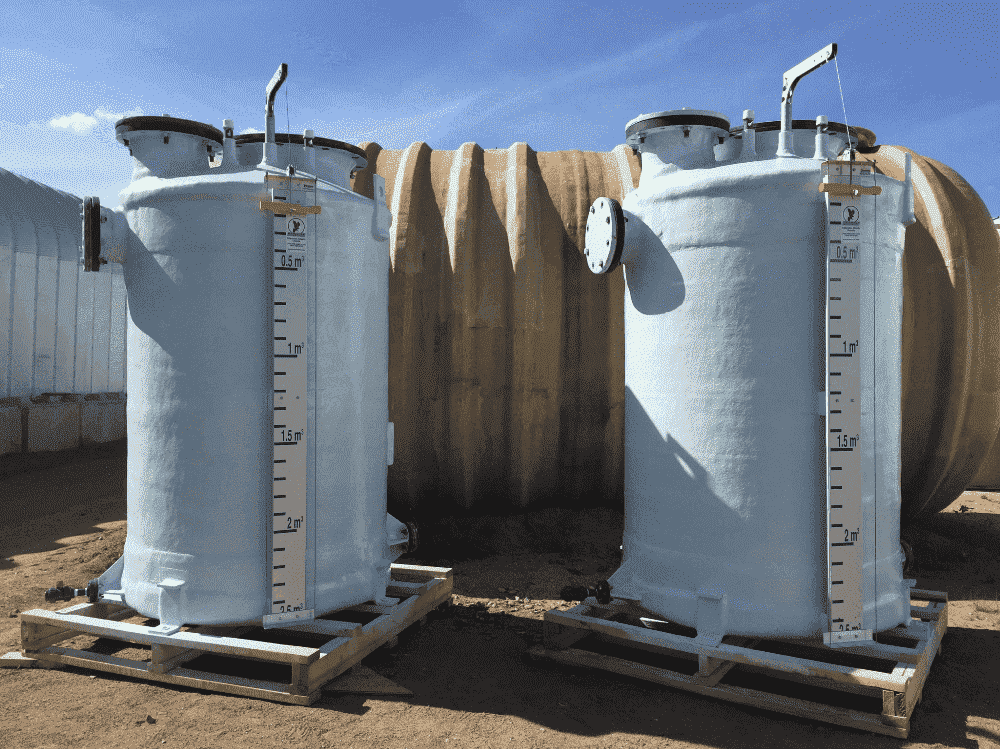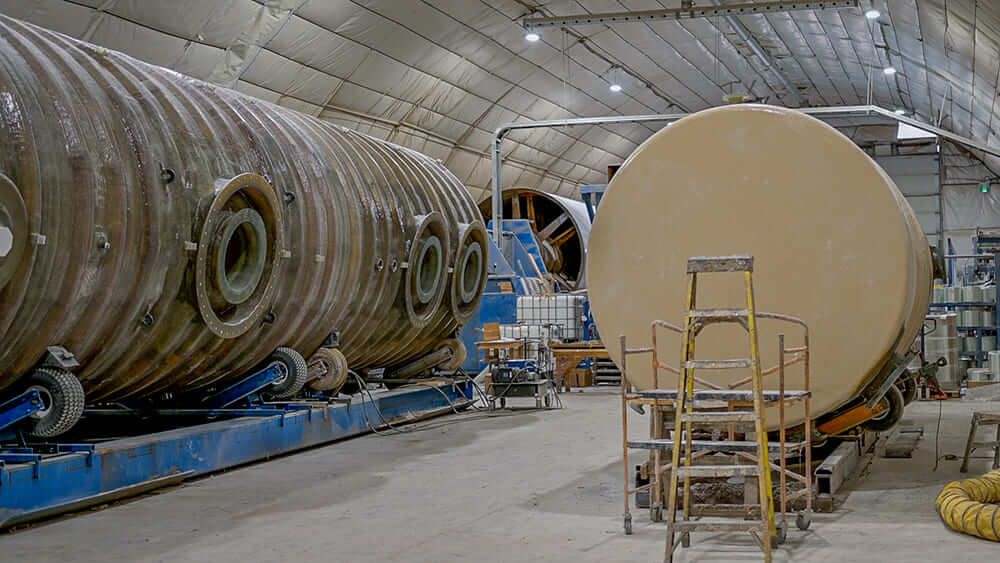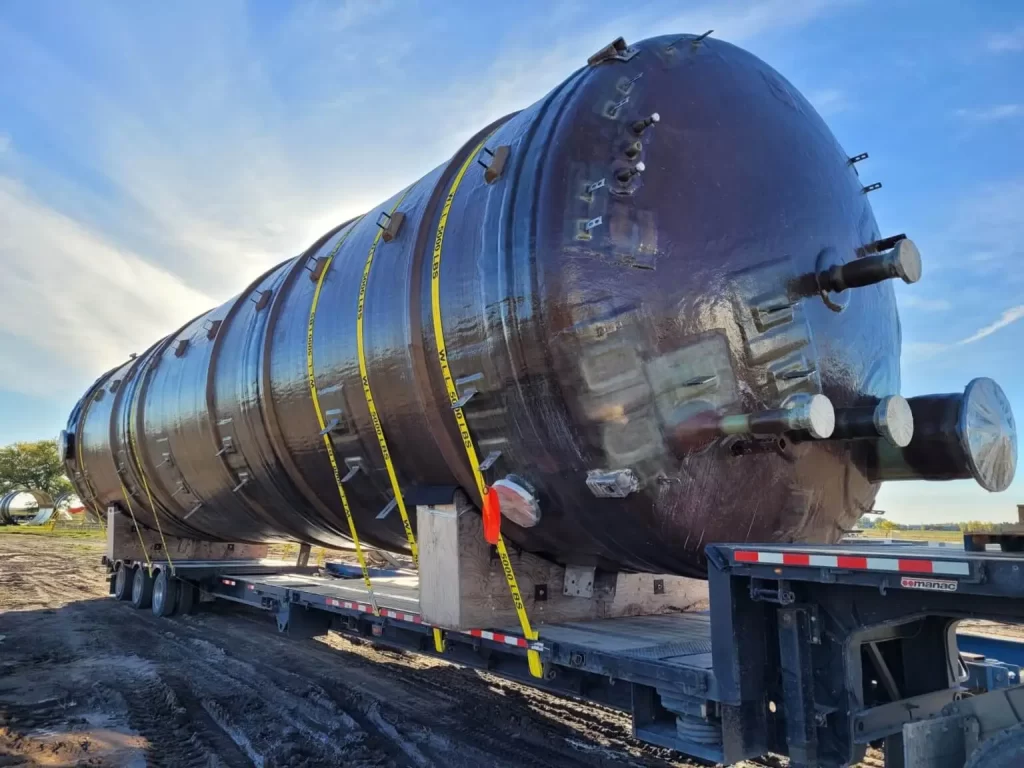Fiberglass-reinforced plastic, or FRP, is a corrosion-resistant, long-lasting, and durable material that is used across several kinds of industries and has been utilized for storing liquids for several years. Although water is the first liquid that comes to mind when we think about liquid storage, FRP was initially designed and engineered for the oil and gas industries and is still considered one of the leading applications for oil and gas storage solutions to this day. Fiberglass tanks offer functional and reliable solutions for the storage of various other liquids such as petroleum, its derivatives, and various chemicals. Read ahead to find out more about storing fuel in fiberglass tanks.
Using Fiberglass For Fuel Storage Tanks
What exactly is it about FRP that makes it such a superb material for storing oil and gas products and byproducts? Petroleum industries rely on FRP tanks as a storage solution because fiberglass-reinforced plastic is a composite material that blends the strength of glass with the chemical resilience of plastic. This feature of FRP makes it a sought-after product for industries that require a durable, long-lasting, and corrosion-resistant solution for their oil and gas storage needs.
Using Fiberglass Fuel Storage Tanks For Gas Stations
A fuel storage tank should be the epitome of safety. Since FRP tanks were specifically designed for the oil and gas industry, they are flexible and resilient in the face of hazardous, flammable, and corrosive materials. Being fire-retardant is crucial when dealing with petroleum products since a potential fire could cost the business more than just the loss of valuable goods. FRP tanks need little maintenance and repairs than other storage tank materials and can withstand extreme weather fluctuations which makes them more reliable.
Fiberglass fuel storage tanks can be used to store and transport different types of fuels, such as gasoline, diesel, and aviation fuels. The following is a list of advantages of using FRP tanks in gas stations:
Corrosion resistance: Since FRP tanks are highly resistant to corrosion, this feature makes it crucial when storing petroleum products since the tank’s resistance to corrosion safeguards the integrity of the stored fuel and prevents leaks.
Leak prevention: FRP tanks are engineered to be leak-proof and this is an essential feature for environmental safety.
Durability: FRP tanks are durable and can have a long lifespan if properly maintained, and can withstand soil movement and other external factors which can be common in underground applications.
Customization: FRP tanks can be customized and manufactured in several sizes and configurations to address the specific requirements and space constraints of a gas station, and to accommodate the necessary volume of fuel storage.
Using Fiberglass For Underground Fuel Storage Tanks
Fiberglass tanks are lightweight when compared to steel tanks, and this feature eases the transport, installation, and handling which simplifies positioning the fuel tank for underground fuel storage. In addition, fiberglass tanks have strong structural integrity which means these tanks can withstand the external pressure associated with being underground. Since FRP tanks are superb at preventing leaks, harmful substances do not enter the surrounding soil which can contaminate groundwater, and the added feature of customization makes fiberglass tanks a sought-after material when it comes to underground fuel storage.
If you are in the market for a reliable and high-performance fuel storage unit, request a quote with FRP Mocoat today to find a trusted solution for your fuel storage requirements.

